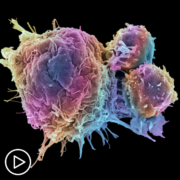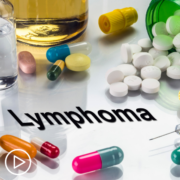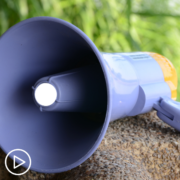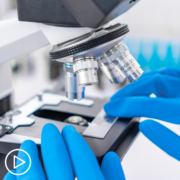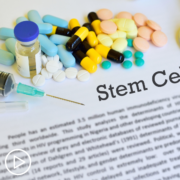What DLBCL Treatment Options Are There for Relapsed/Refractory Patients?
What DLBCL Treatment Options Are There for Relapsed/Refractory Patients? from Patient Empowerment Network on Vimeo.
What can relapsed/refractory diffuse large B-cell lymphoma (DLBCL) patients look to for treatment options? Expert Dr. Nirav Shah from the Medical College of Wisconsin shares research updates for relapsed/refractory DLBCL patients and his perspective about advances in DLBCL care.
Dr. Nirav Shah is an Associate Professor at the Medical College of Wisconsin. Learn more about Dr. Shah.
[ACT]IVATION TIP:
“…for those patients who have relapsed DLBCL, is learn your options and make the decision that is best that fits your personal needs, your ability to handle the treatment with your doctor.”
See More from [ACT]IVATED DLBCL
Download Resource Guide en español
Related Resources:
Transcript:
Lisa Hatfield:
What treatment options are available for patients who have either relapsed with DLBCL or are refractory to certain treatment options, meaning that they are no longer responding to those treatment options?
Dr. Nirav N. Shah:
Yeah, so the good news is, is for DLBCL, even in the relapsed setting, we have lots of options available, and that’s really exciting. The way that I look at a patient is how quickly did they relapse and then are they eligible for a higher intensity treatment or not. We know that patients who relapse early, within the first 12 months, that for that group of patients, the best therapy based on clinical trials is to get them to a CAR T-cell therapy type treatment, which has high efficacy and the potential to cure patients with diffuse large B-cell lymphoma. We now have patients who are more than five years out after CAR T with relapsed disease and an ongoing remission.
Now, for some patients who relapse later, we still consider things like stem cell transplantation, which was sort of the standard of care for 20 plus years until recent data showed that CAR T might be a better option in those patients who relapse early. Now, we have a group of patients that often aren’t candidates for high intensity treatment because they’re older because they have medical problems, or because they live too far away, and they can’t commit to the three to four weeks that it takes to be able to get a therapy like CAR T or stem cell transplant at a larger community or a larger academic hospital.
And the good news is that we even have options for them, so there’s new chemotherapy regimens, new antibody-based treatments that again, I like to think of those medications as more disease control rather than disease cure, but for some patients, disease control is often adequate. It allows him to be functional, go to work, with the milder therapy that sort of meets their, again, personal and individualized needs. And so my activation tip for those patients who have relapsed DLBCL, is learn your options and make the decision that is best that fits your personal needs, your ability to handle the treatment with your doctor.
Share Your Feedback:
Create your own user feedback survey



